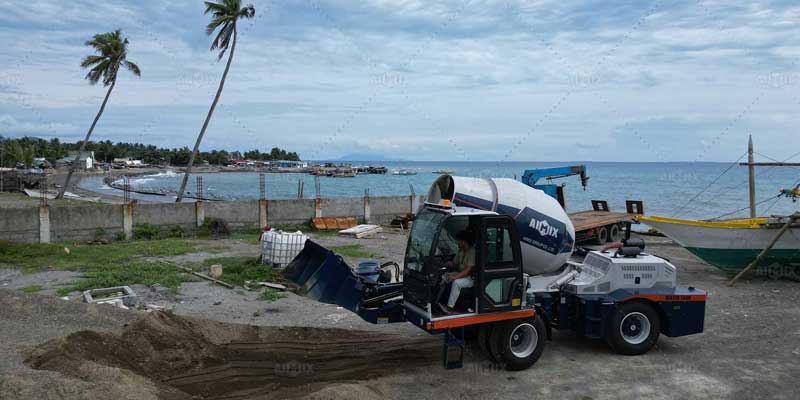


Discover how modern self-loading concrete mixers conquer Saudi Arabia’s soft terrains with specialized engineering solutions for desert construction.
The construction boom across Saudi Arabia presents unique challenges for equipment manufacturers and operators alike. Among these challenges, the kingdom’s notoriously soft desert terrains test the limits of even the most robust machinery. Self loading mixer concrete has emerged as potential game-changers for remote projects, but their performance in these demanding conditions requires careful examination. These versatile machines combine mixing and transport functions, promising efficiency gains – provided they can maintain stability and traction on unstable surfaces.
Saudi Arabia’s varied geology ranges from loose sand dunes to sabkha (salt flats) with bearing capacities as low as 10 kN/m² in some regions. Traditional concrete delivery methods often struggle with these conditions, creating a compelling case for self-loading solutions. However, the machines must overcome three critical terrain-related hurdles: wheel sinkage potential, material contamination risks, and stability during simultaneous loading and mixing operations. Understanding how modern designs address these challenges reveals whether they truly represent viable solutions for Saudi contractors.
Leading manufacturers have developed specialized flotation tire systems that distribute weight across larger surface areas. These incorporate wide-base radial tires with aggressive tread patterns, maintaining ground pressures below 35 kPa – crucial for preventing excessive sinkage in loose substrates. Some models now feature central tire inflation systems that allow operators to adjust pressure on-the-fly, optimizing traction as terrain conditions change throughout the workday.
The latest generation of self loading mixers in Saudi Arabia employs permanent all-wheel drive with intelligent torque distribution. This goes beyond simple mechanical locking differentials, using electronic sensors to detect wheel slip and automatically redirect power to wheels maintaining traction. In sabkha conditions where surface hardness varies dramatically over short distances, this technology prevents the digging-in that plagued earlier models.
Soft terrains pose unique material quality challenges. Dust and sand infiltration can compromise concrete strength if not properly managed. Advanced mixer designs now incorporate hermetic sealing systems around loading apertures and discharge gates, with positive air pressure maintained in the drum during operation to prevent particulate ingress. Some units feature automatic wash-down systems that purge the mixing chamber between batches when working in particularly dusty conditions.
The dynamic forces generated during mixing present special challenges on soft substrates. Modern mixers use counter-rotational drum technology that cancels out torque reactions, preventing the machine from “walking” during operation. Computer-controlled mixing sequences adjust blade rotation speed based on real-time stability feedback, ensuring consistent concrete quality regardless of ground conditions beneath the wheels.
While self-loading mixers reduce the need for extensive site preparation compared to traditional concrete delivery methods, some minimal ground improvement often proves economical. Lightweight geogrid stabilization mats can create temporary working platforms at mixing locations, typically adding less than 2% to project costs while dramatically improving machine efficiency and longevity.
Saudi Arabia’s extreme temperatures demand special considerations. The most terrain-capable mixers now include thermal management systems for hydraulic components, preventing overheating while maintaining viscosity in scorching ambient conditions. Drum insulation helps maintain optimal curing temperatures during transport across vast project sites, with some models achieving less than 2°C temperature rise per hour of operation in 50°C environments.
The evidence suggests modern self-loading concrete mixers can indeed conquer Saudi Arabia’s soft terrains – with the right specifications and operational protocols. Manufacturers have made significant strides in addressing the region’s unique challenges, creating machines that combine the mobility of dump trucks with the precision of batching plants. For contractors working on NEOM, Red Sea Project, or other ambitious developments, these advancements translate to tangible productivity gains without compromising concrete quality or equipment reliability in the kingdom’s demanding environments.
